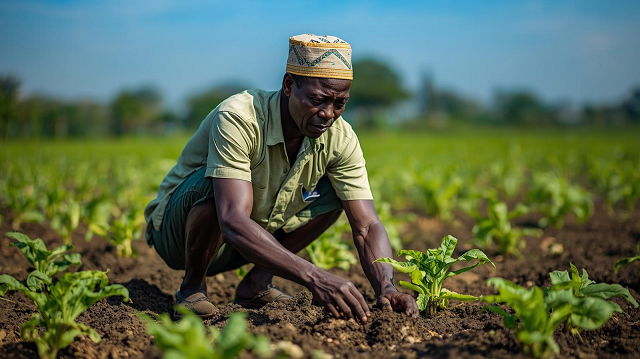Farm Worker Recruitment Spain Africans 2026
Spain remains one of the largest agricultural employers in Europe, especially in seasonal and full-time farm work. Between fruit harvesting, vegetable production, greenhouse operations, livestock management, and large-scale agribusiness, Spain hires tens of thousands of foreign workers every year. By 2026, the demand for African workers especially Nigerians, Ghanaians, Kenyans, Ugandans, and other continental migrants is projected to grow due to labour shortages within the country’s agricultural sector.
This article provides a complete, deeply researched breakdown of Spain farm worker recruitment for Africans in 2026, including requirements, eligibility, visa sponsorship, expected salaries, recruitment calendar, mistakes to avoid, practical tips, challenges, and case-study examples.
Why Spain Continues to Recruit African Farm Workers in 2026
Structural Labour Shortages
For over a decade, Spain has struggled to attract enough local workers for agricultural roles. Many Spanish citizens prefer higher-paying urban jobs, leaving farms without sufficient labour. This shortage worsens during peak seasons such as spring and summer.
Expanding Agricultural Output
Regions like Andalusia, Murcia, Valencia, Aragon, and Catalonia continue to invest heavily in fruit, vegetable, and flower production. The need for pickers, packers, planters, irrigation assistants, and greenhouse workers grows yearly.
Dependence on Seasonal Migrants
Spain already recruits large numbers of workers from:
-
Morocco
-
Sub-Saharan Africa
-
Latin America
-
Eastern Europe
In 2026, African workers remain a major focus due to:
-
High willingness to work seasonally
-
Good performance in repetitive farm roles
-
Large population of job seekers
-
Productive bilateral agreements between Spain and African governments
Farm Worker Recruitment Spain Africans 2026
Visa Programs Supporting African Recruitment
Spain runs different visa pathways for seasonal and full-time workers. Some include sponsorship, meaning employers support or facilitate the visa process. These pathways are expected to remain active and even expand in 2026.
Types of Farm Worker Jobs Spain Recruits Africans for in 2026
Fruit Picking and Harvesting Jobs
These remain the largest category. Common fruits include:
-
Strawberries
-
Oranges
-
Lemons
-
Peaches
-
Watermelons
-
Blueberries
-
Grapes
African workers are hired primarily during spring and summer.
Vegetable Farm Jobs
Typical roles:
-
Planting and transplanting
-
Irrigation support
-
Harvesting tomatoes, peppers, onions, cucumbers, and lettuce
-
Greenhouse maintenance
Flower and Nursery Jobs
Spain’s horticulture industry is huge. African workers assist with:
-
Flower cutting
-
Sorting
-
Packaging
-
Greenhouse operations
Farm Machinery Assistance
Some employers recruit Africans for:
-
Tractors
-
Spray machines
-
Irrigation pumps
This often requires some experience and training.
Livestock and Dairy Support Roles
Although less common than crop roles, Africans are also hired for:
-
Feeding animals
-
Cleaning barns
-
Sorting and processing
-
Basic farm maintenance
Eligibility Requirements for Africans Seeking Spain Farm Worker Recruitment in 2026
Age Requirements
Most employers prefer:
-
18 to 55 years old
-
Physically strong and able to work long hours
Physical Fitness
The work is physically demanding, so applicants must be:
-
Healthy
-
Energetic
-
Able to stand for long periods
-
Able to lift moderate weight
Experience Level
The good news: experience is NOT always required.
Spain hires both:
-
Skilled farm workers
However, having previous experience in farming, gardening, or factory work increases your chances of selection.
No Criminal Record
Applicants must provide:
-
Police clearance certificate
-
Clean background check
Ability to Work Long Hours
During peak seasons, workers may work:
-
6 days a week
-
8 to 10 hours per day
Basic Language Skills
Spanish language is not mandatory, but helpful. Many farms communicate using:
-
Basic Spanish
-
English
-
Hand signals
-
Supervisory demonstrations
Willingness to Work Seasonally
For seasonal recruitment, employers want workers who can relocate for:
-
2 months
-
3 months
-
6 months
Documents Africans Need for Spain Farm Worker Recruitment 2026
Essential Documents
-
International passport (valid for 6–12 months minimum)
-
Passport-sized photographs
-
Police clearance certificate
-
Proof of medical fitness
-
Proof of accommodation (if not provided by employer)
-
Job contract or offer letter (for sponsorship)
Optional Supporting Documents
-
Previous employment letters
-
Training certificates
-
Basic identification documents
Farm Worker Recruitment Spain Africans 2026
Spain Agricultural Work Visa (Seasonal and Full-Time) 2026
Types of Work Visas for Farm Workers
Seasonal Agriculture Visa (Most Common)
This is the visa used for fruit picking, vegetable harvesting, and related roles. Employers often assist with documentation.
Temporary Work Visa
This covers:
-
Greenhouse work
-
Livestock farm jobs
-
Longer-term agricultural roles
Long-Term Employment Visa
Rare for farm workers but possible for:
-
Machinery operators
-
Experienced greenhouse technicians
-
Farm supervisors
Visa Sponsorship Explained for African Farm Workers in Spain
Visa sponsorship means:
-
An employer issues you a job contract
-
They assist in your visa process
-
They submit documents to Spanish authorities
-
You apply using their contract
Spain’s agricultural sector heavily depends on sponsorship to bring foreign workers during peak seasons. This makes sponsorship common in 2026.
Expected Salaries for Farm Workers in Spain in 2026
Salaries vary by region, season, crop type, and employer. Below is a realistic average for 2026.
Average Salary Range
-
€900 to €1,400 per month for unskilled farm workers
-
€1,300 to €1,800 per month for workers with experience
-
€1,500 to €2,200 per month for machinery operators or experienced pickers
Payment Structures
Farm workers may be paid:
-
Hourly
-
Weekly
-
Monthly
-
Per crate/basket harvested
Overtime Bonuses
Busy farms often pay extra for:
-
Weekend work
-
Public holidays
-
High-yield days
Accommodation for African Farm Workers in Spain
Many employers provide:
-
On-site accommodation
-
Shared dormitories
-
Farm hostels
Accommodation may include:
-
Beds
-
Kitchen facilities
-
Electricity
-
Water
-
Basic amenities
If free accommodation is provided, it significantly reduces the cost of living for migrants.
Feeding and Transportation
Depending on the employer:
-
Some provide daily meals
-
Others deduct small fees from wages
-
Some allow self-cooking in shared kitchens
Transport to and from the farm is usually:
-
Free
-
Coordinated by the employer
-
Included in the contract
Step-by-Step Process for Africans Applying for Spain Farm Worker Jobs in 2026
Step 1: Identify a Legitimate Employer or Recruitment Agency
Look for:
-
Verified recruitment agencies
-
Spanish agricultural cooperatives
-
Direct farm employers seeking foreign labour
-
Community-based recruitment drives
Step 2: Submit Your Application
Typical documents include:
-
Passport
-
CV
-
Passport photos
-
Police report
Step 3: Employer Reviews Your Application
After review, successful applicants may receive:
-
Interview calls
-
Skill tests
-
Physical fitness assessments
Step 4: Receive Job Offer or Contract
This is required for your visa.
Step 5: Apply for the Spain Seasonal Work Visa
Submit your application through the:
-
Spain embassy or consulate in your country
Step 6: Attend Biometrics and Visa Interview
Provide fingerprints, photos, and supporting documents.
Step 7: Wait for Visa Approval
Processing times may vary.
Step 8: Travel to Spain
Once approved, you travel to your assigned region.
Step 9: Start Work
Employers guide you through:
-
Orientation
-
Safety training
-
Work schedules
Farm Worker Recruitment Spain Africans 2026
Best Regions in Spain Where Africans Work on Farms
Andalusia
The largest employer of foreign farm workers.
Murcia
Known for citrus fruit and vegetable farming.
Catalonia
Employs seasonal fruit pickers.
Valencia
Orange farms dominate the region.
Aragon and Navarra
Large-scale orchards hire thousands yearly.
Benefits of Spain Farm Worker Recruitment for Africans in 2026
Stable Salaries
Farm work pays consistently and often includes overtime opportunities.
Lower Entry Requirements
Most jobs do not require:
-
Degrees
-
Advanced certificates
-
Experience
Visa Sponsorship Opportunities
Many farms help African workers with documentation.
Accommodation Provided
Reduces living costs.
Opportunity to Build International Work Experience
This can help Africans migrate to:
-
Other European jobs
-
Skilled roles
-
Permanent opportunities
Potential for Rehire
Many workers return annually for seasonal contracts.
Challenges Africans May Face in Spain Farm Work
Long Working Hours
Some days can be demanding, especially during harvest.
Weather Conditions
Heat, cold, and unpredictable weather may affect performance.
Homesickness
Seasonal workers may miss family.
Language Barriers
Spanish is the main language used on farms.
Physical Exhaustion
The work requires stamina and endurance.
Mistakes Africans Should Avoid When Applying
Falling for Fake Agents
Always confirm legitimacy.
Applying Without Needed Documents
Embassies will reject incomplete applications.
Poor Communication with Employers
Respond promptly to messages and emails.
Ignoring Visa Instructions
One small error can cause delays.
Tips for Africans Seeking to Succeed in Spain Farm Work
Prepare Physically
Start training your body to adapt to:
-
Bending
-
Lifting
-
Standing
Learn Basic Spanish
Simple phrases can help with:
-
Work instructions
-
Navigation
-
Daily communication
Save Money
Since accommodation is often free, you can save a large portion of your salary.
Farm Worker Recruitment Spain Africans 2026
Maintain Good Discipline
Employers rehire disciplined workers every year.
Case Study Example: An African Worker’s Journey to Spain (Sample Profile)
Background
A Nigerian applicant with limited experience applied for a farm job through a cooperative recruitment drive.
Process
-
He submitted basic documents
-
Received a job contract
-
Applied for a visa and attended biometrics
-
Traveled to Spain after approval
Experience
He worked on a strawberry farm:
-
6 days per week
-
8 hours per day
Accommodation and transport were free.
Outcome
He saved money, supported his family, and was invited back the following year.
Future Outlook: What Africans Should Expect from Spain Farm Worker Recruitment Beyond 2026
Increased Digital Applications
More employers will accept online applications.
Expansion of Bilateral Agreements
African governments may sign more labour migration deals with Spain.
Higher Salaries
As labour shortages grow, wages may rise slightly.
More Visa Sponsorship Slots
Seasonal agriculture visas may expand due to increased demand.
Final Thoughts
Spain’s farm worker recruitment for Africans in 2026 provides one of the most accessible European job opportunities for unskilled and semi-skilled workers. With relatively low entry requirements, decent salaries, free accommodation, strong visa pathways, and enormous labour demand, African job seekers can benefit significantly from this opportunity.
Success depends on:
-
Applying through legitimate channels
-
Preparing the right documents
-
Understanding the work conditions
-
Maintaining discipline and hard work
For Africans seeking a realistic and achievable route into European employment, Spain’s agricultural sector remains one of the best starting points.






